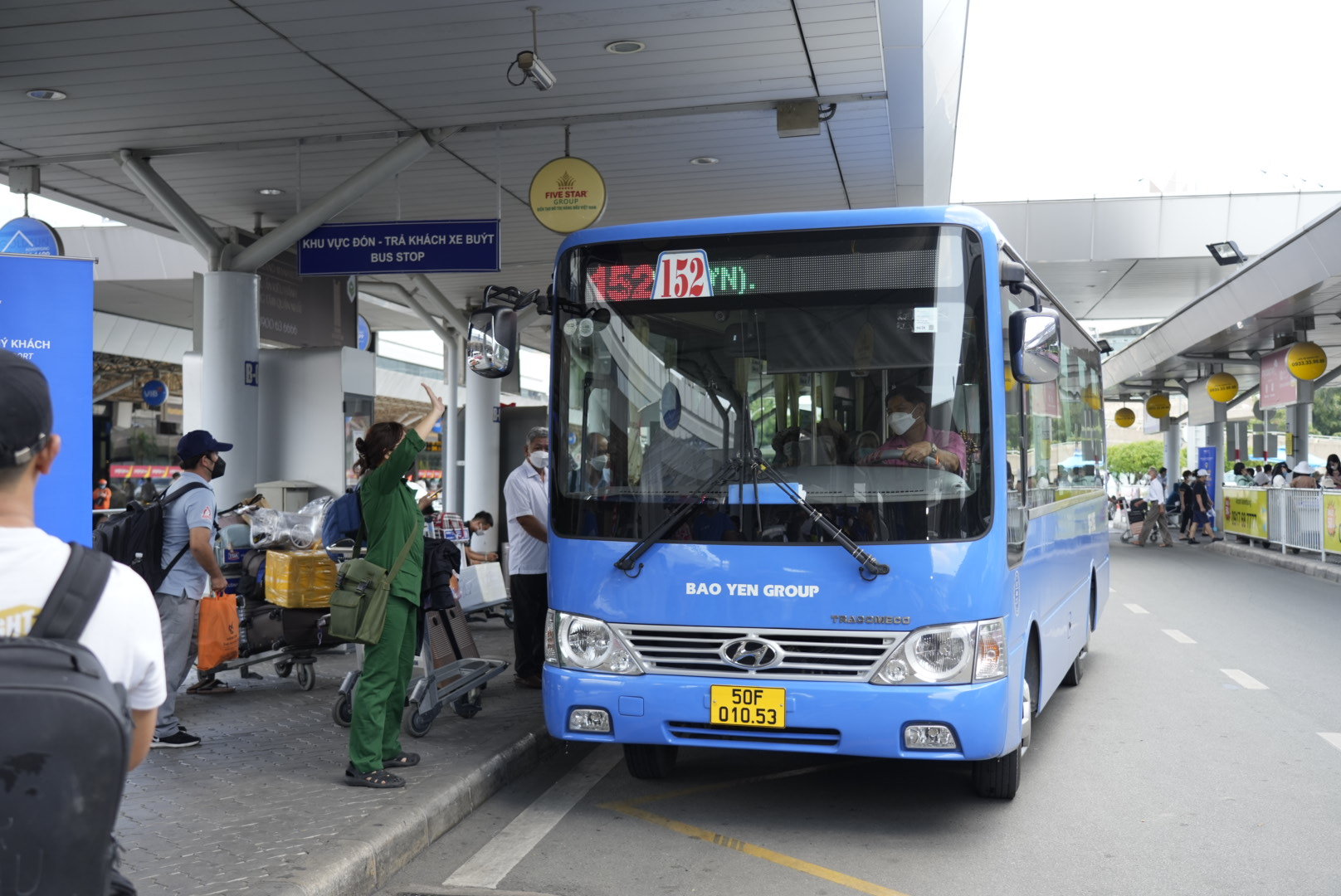Measure sustainable commuting
FPT University measures sustainable commuting by tracking the number of city buses that have bus routes near the university and their frequency, the number of shuttle buses and the number of people using shuttle buses, the number of electric cars, and the number of bicycles taken each year.
City buses
Going to school by city bus has become popular for FPT University students and employees due to the cheap price and availability. The cost of a bus ticket to get to FPT University is from 3,000 to 9,000 VND, depending on the distance between the departure and the endpoint.
| Hanoi Campus | Ho Chi Minh City Campus | Da Nang Campus | Can Tho Campus | Quy Nhon Campus | |
| Number of city buses | 05 | 11 | 02 | 02 | 02 |
| Ticket fee | From VND 7,000 to VND 9,000 | From VND 3,000 to VND 7,000 | From VND 5,000 to VND 7,000 | From VND 7,000 to VND 15,000 | From VND 8,000 to VND 20,000 |
| Frequency of bus routes | Every 10 – 20 minutes from 5.00am to 9.00pm | Every 7 – 10 minutes from 5.00am to 8.30pm | Every 10 – 20 minutes from 5.00am to 8.30pm | Every 10 – 20 minutes from 5.00am to 8.30pm | Every 10 – 20 minutes from 5.00am to 8.30pm |
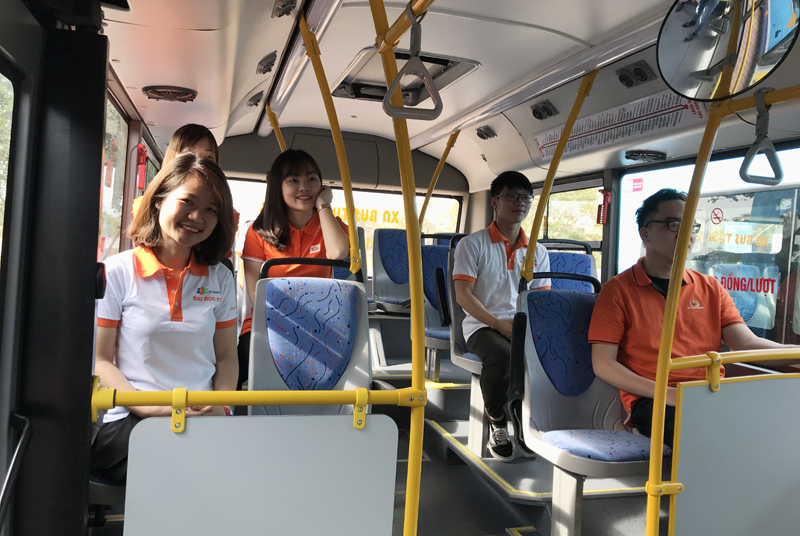
Shuttle buses of FPT University
| Hanoi Campus | Ho Chi Minh City Campus | Da Nang Campus | Can Tho Campus | Quy Nhon Campus | |
| Number of shuttle buses | 11 | 06 | Because of the campus in the city center, FPTU has encouraged students, staff and lecturers use city bus to get to the university. | ||
| Capicity | 402 employees | 2,700 students and employees | |||
| Shuttle bus routes | From employees’ residences to the university | From city bus stops to the university | |||
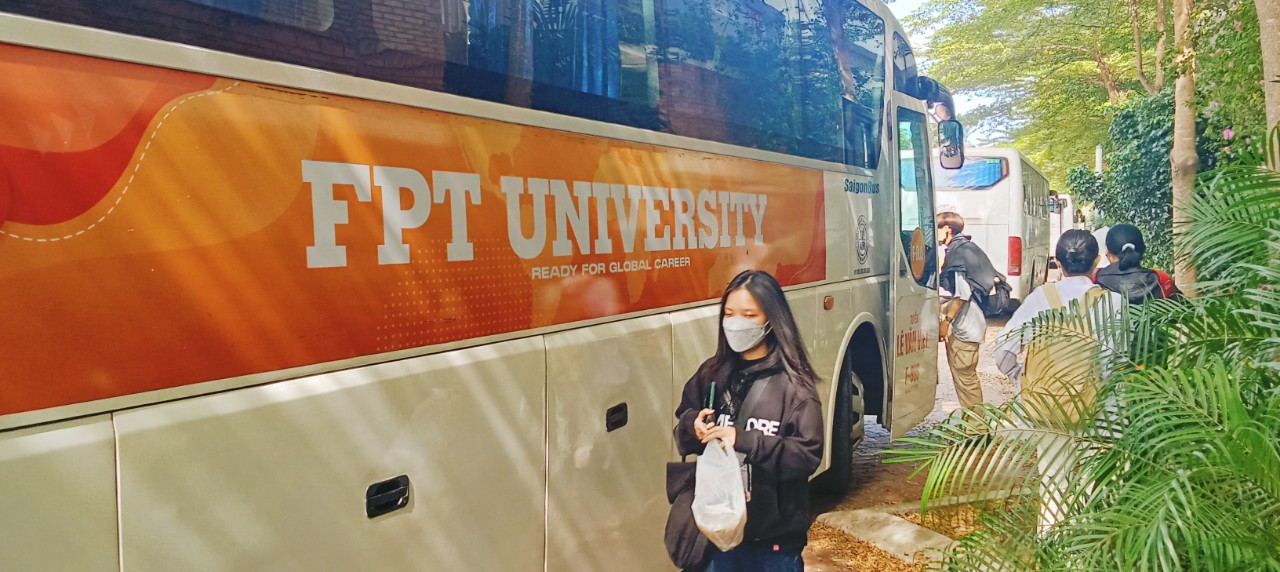
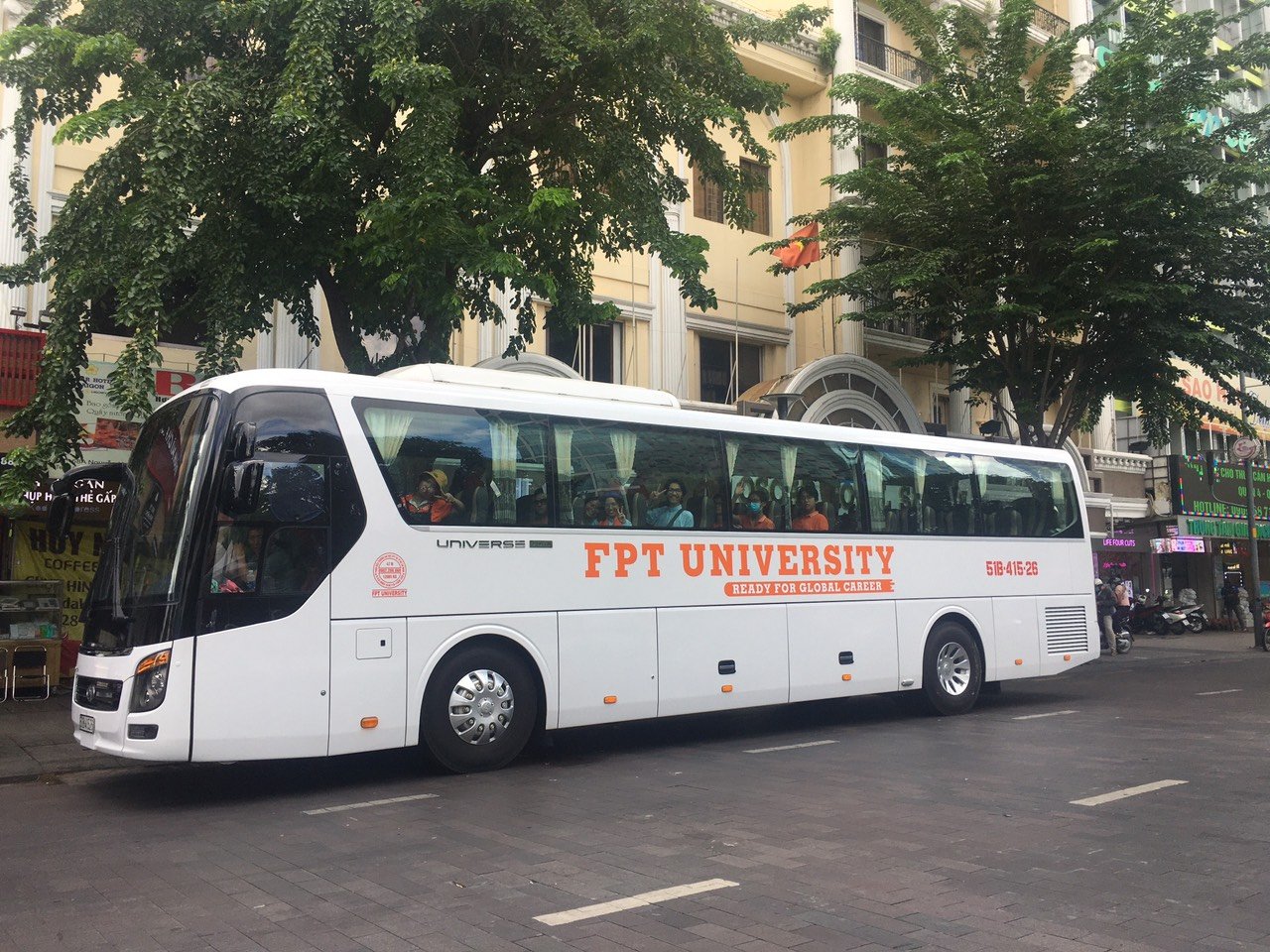 Electric cars
Electric cars
| Hanoi Campus | Ho Chi Minh City Campus | |
| Number of school electric cars | 2 | 2 |
| Capicity | 2 electric cars*12 seats | 2 electric cars*12 seats |
| Ticket fee | Free | Free |
| Frequency of electric cars | Upon the employees and students’ request, they will use electric cars to commute across the campus or visit other buildings. | |
The number of new personal vehicles that use clean energy: 25% of staff and lecturers.
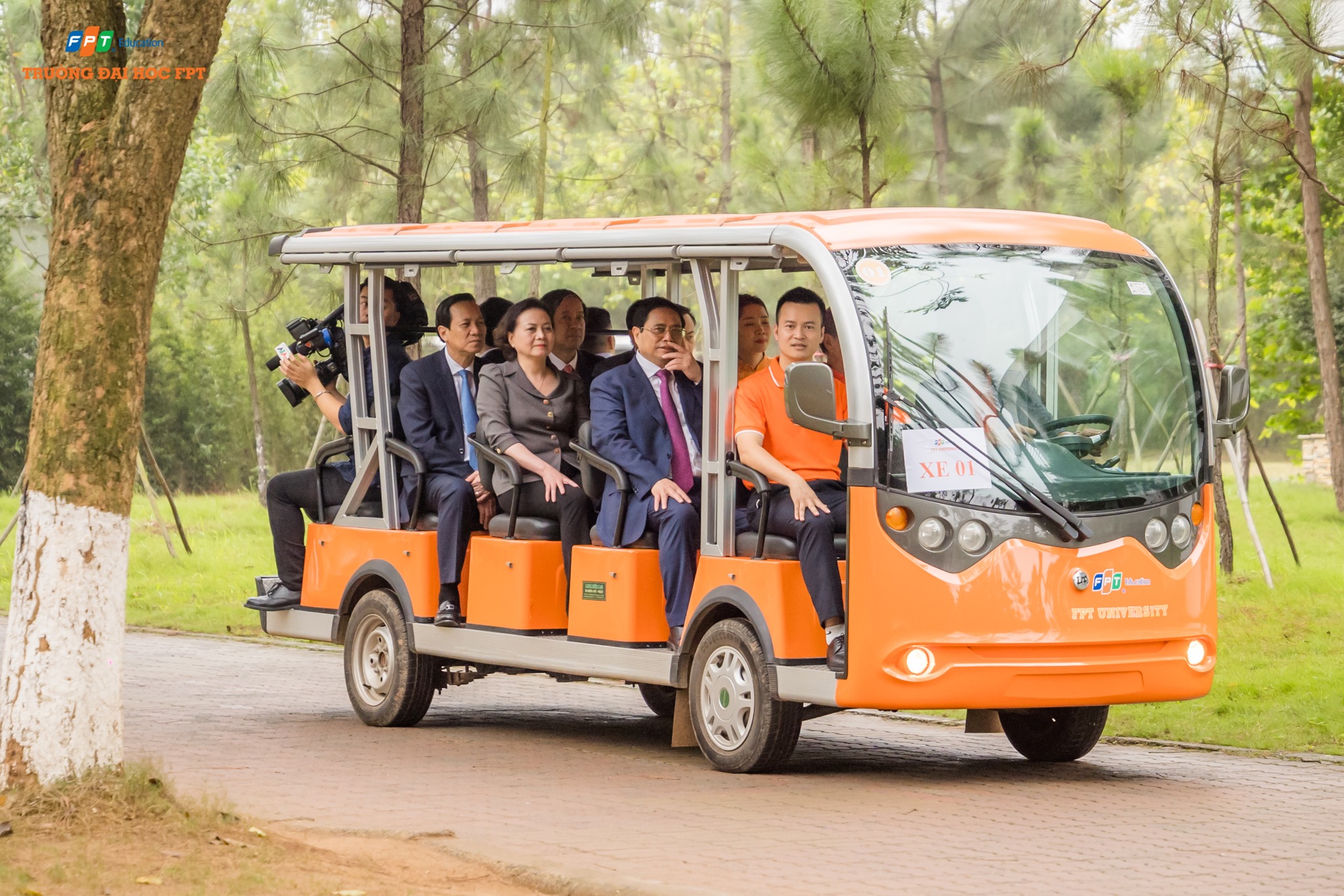
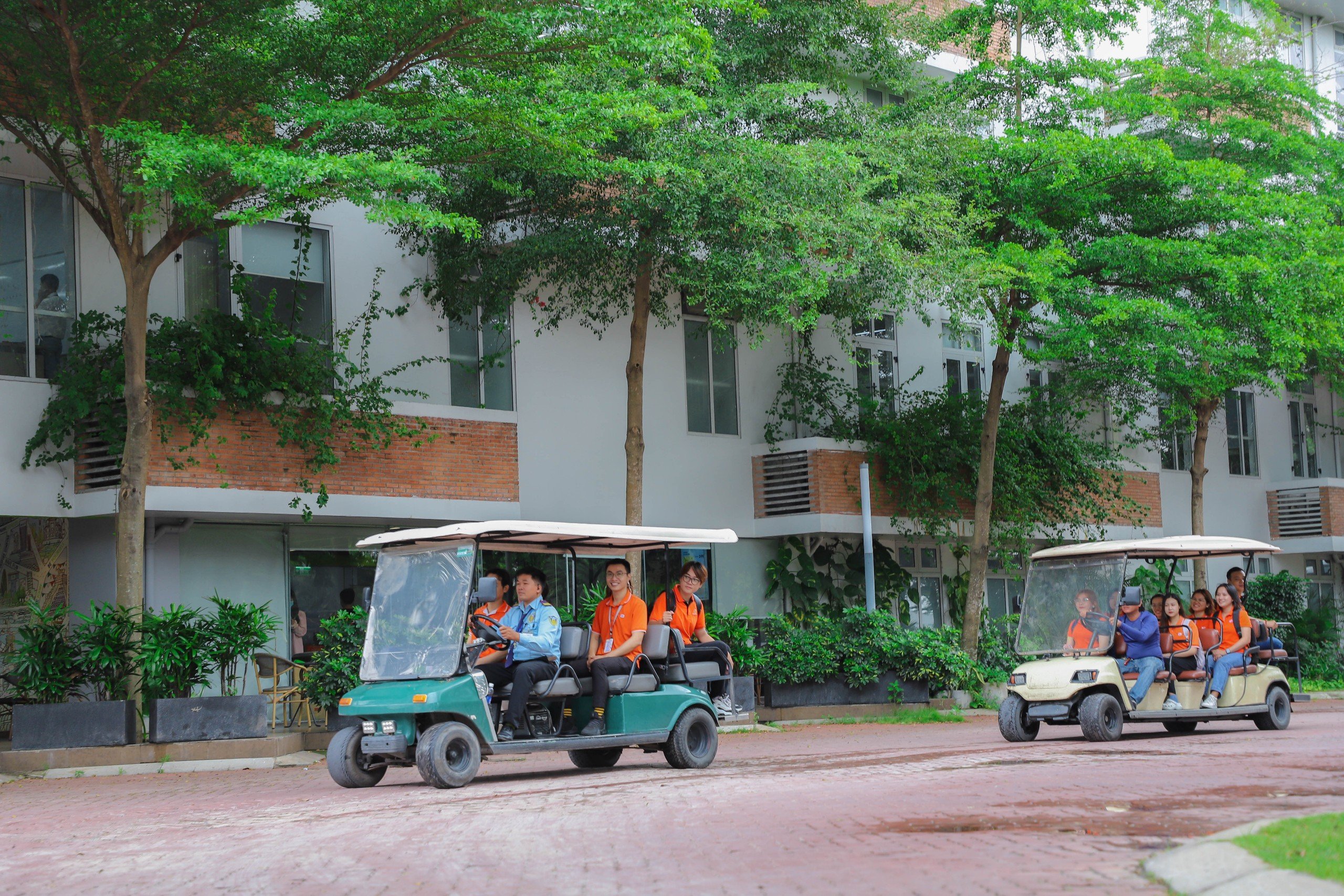
Sustainable Transport Organizational Plan 2023
| Solutions | Targets | KPI | |||||
| Hanoi campus | Ho Chi Minh city campus | Can thơ campus | Da nang campus | Quy nhơn campus | |||
| School support | Reduce carbon emissions by carpooling | Increase the number of vehicles, carpool rides, and routes of shuttle bus | 16 seat x 1 vehicle
29 seat x 4 vehicle 45 seat x 9 vehicle |
45 seat x
5 vehicle 5 x2 routes |
|||
| Establish contracts with City Bus to open new routes and stops near schools for convenient transportation connections | 3 x2 routes
25min/trip |
2×2 routes
10 min/trip |
2×2 routers
25min/trip |
3×2 routers
20min/trip |
2×2 routers
25min/trip |
||
| Infrastructure support for clean energy users | -Construct additional electric charging stations in car- park
For Car: 2 stations Install areas for charging electric bicycles &scooters: 2 unit/1 campus. – Equip safety devices to prevent fires and explosions at charging stations according to safety standards. |
||||||
| Use low-carbon transportation methods | Use small public electric vehicles for short-distance connections.
Encourage the purchase of new personal vehicles that use clean energy |
Use public electric vehicles from the car park to the campus at Ho Chi Minh: 04 car.
Increase the purchase of new personal vehicles that use clean energy to 35% of staff and lecturers. |
|||||
| PR and organize optimal transportation | Utilize technology to optimize transportation, avoid congestion and flooding hotspots. | Use apps such as Zalo and Google Maps with real-time traffic updates to enhance commuting efficiency. Combine work and online-offline teaching to optimize travel.
Carpool. Change routes when receiving unfavorable information on the app. |
|||||
| Support accommodation in the dormitory and find accommodation outside for students | Seek accommodation for students close to the school.
Increase dormitory capacity with one building at the Da Nang campus; one building at the Hanoi campus; one building at the Quy nhon campus. |
||||||
| Encourage walking and running sports activities both inside and outside the campus. | Renew certain pedestrian paths within campus Hanoi: 1,5 km and campus Can Tho: 1km, with safety signs and markings according to standards.
Conduct surveys to establish running tracks around or within the campus. |
||||||




